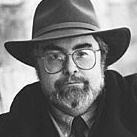Rascals case in brief
In the beginning, in 1989, more than 90 children at the Little Rascals Day Care Center in Edenton, North Carolina, accused a total of 20 adults with 429 instances of sexual abuse over a three-year period. It may have all begun with one parent’s complaint about punishment given her child.
Among the alleged perpetrators: the sheriff and mayor. But prosecutors would charge only Robin Byrum, Darlene Harris, Elizabeth “Betsy” Kelly, Robert “Bob” Kelly, Willard Scott Privott, Shelley Stone and Dawn Wilson – the Edenton 7.
Along with sodomy and beatings, allegations included a baby killed with a handgun, a child being hung upside down from a tree and being set on fire and countless other fantastic incidents involving spaceships, hot air balloons, pirate ships and trained sharks.
By the time prosecutors dropped the last charges in 1997, Little Rascals had become North Carolina’s longest and most costly criminal trial. Prosecutors kept defendants jailed in hopes at least one would turn against their supposed co-conspirators. Remarkably, none did. Another shameful record: Five defendants had to wait longer to face their accusers in court than anyone else in North Carolina history.
Between 1991 and 1997, Ofra Bikel produced three extraordinary episodes on the Little Rascals case for the PBS series “Frontline.” Although “Innocence Lost” did not deter prosecutors, it exposed their tactics and fostered nationwide skepticism and dismay.
With each passing year, the absurdity of the Little Rascals charges has become more obvious. But no admission of error has ever come from prosecutors, police, interviewers or parents. This site is devoted to the issues raised by this case.
On Facebook
Click for earlier Facebook posts archived on this site
Click to go to
Today’s random selection from the Little Rascals Day Care archives….
Click for earlier Facebook posts archived on this site
Click to go to
Today’s random selection from the Little Rascals Day Care archives….
From Trump to Pizzagate, Internet is geyser of malinformation

charlespierce.net
Charles P. Pierce
Dec. 7, 2016
“If you do a Google search right now for ‘McMartin preschool tunnels,’ you will be inundated with ‘studies’ and ‘reports’ that ‘prove’ the tunnels did exist, and that the lurid fictions prompted out of the children by ambitious social workers were therefore true. Nothing dies on the Internet, not even the most arrant lunacy….
“One of [Donald Trump’s] primary surrogates, Scottie Nell Hughes, told an NPR panel that ‘There’s no such thing, unfortunately, anymore as facts.’ But we have not ‘entered’ an age of post-truth politics. We’ve been living in it for years. The Executive Branch of the government just has been slow to catch up. Now, it’s right there with the rest of us, god help the country. We’re all just the children of McMartin now. We’ll say anything we’re told until we come to believe it ourselves.”
– From “America Was Always a Nation of Conspiracy Theorists. Now, They’re Simply More Dangerous: Lessons from Pizzagate” by Charles P. Pierce in Esquire (Dec. 5)
![]()
Sheriff, mayor escaped prosecutors’ dragnet
May 22, 2013
“One of the biggest strengths for the prosecution was that these children would go home every night to a parent or parents fully aligned with the prosecution theory. The story line would be reinforced at dinner, bathtime, playtime, bedtime….
“The children were, of course, separated from further contact with the accused day care workers, and by the time of trial their young memories of the actual person had been replaced by the fictional person, if they could remember who the perpetrators were supposed to be at all.
“At one point, a Little Rascals child pointed to a picture of the sheriff as one of the defendants; this identification, of course, was selectively ignored.”
– From “The Metanarrative of Suspicion in Late Twentieth-Century America” by Sandra Baringer (2004)
Edenton’s mayor was also among the initially accused, who numbered either 20, 24 or “dozens,” depending on the source. The inevitable question: How did prosecutors come to choose the Edenton Seven? Who lucked out – and why?
For Edenton, ‘Little Rascals is unfinished business’

visitedenton.com
Hayes Plantation
May 16, 2016
The aftereffects of Little Rascals on Edenton have long interested me. With few exceptions the town’s residents, now fewer than 5,000 for the first time since 1970, seem dedicated to forgetting their prominent role in the “satanic ritual abuse” day-care panic. When the chief prosecutor ran for district attorney, the local paper published 17 stories and an endorsement editorial without mentioning Little Rascals.
One Edenton innkeeper even deleted mention of the case from the town’s Wikipedia page.
So I’m always glad to see another perspective. This is from a note sent by a former resident:
“I was excited to see your Facebook page on Little Rascals. I had been looking for copies of the PBS programs for years and had only uncovered some poor quality copies.
“I have many friends in Edenton, which made viewing ‘Innocence Lost’ all the more interesting. I began to know Edenton right at the tail end of the saga. For me its attractiveness was the sense that I was in a very different place, a different culture from home. Quiet, peaceful, slow-paced. But we concluded this was no place to live. Yes, some nice people to be found, but overall, pretty stifling.
“The town leaders still have some things to answer for about Little Rascals, and I suspect that until there is a process of reconciliation, the town will remain a troubled place, though it does a good job putting on a facade.
“Little Rascals is unfinished business. The problem is that the power structure sees no reason for change. There is such a direct link to the plantation mentality here in eastern North Carolina (which also saw no reason to change), it’s not even funny.”
![]()
Duke Law project examining Chandler’s case
 Sept. 23, 2014
Sept. 23, 2014
The Duke Law School Wrongful Convictions Clinic was a crucial ally of defense attorney Sean Devereux in the recent exoneration of Michael Alan Parker, whose “satanic ritual abuse” conviction bears many fundamental similarities to Junior Chandler’s.
Now, co-director Theresa Newman tells me the clinic “is reviewing the case file to determine if we can help Mr. Chandler prove his innocence.
“We are at the VERY early stages of our review, so we do not have a good sense of things yet and cannot even estimate a timeline for the review. The file is large and the case is complicated, so the review will take some time.
“That said, we are mindful of how long Mr. Chandler has been imprisoned and, to the extent possible, will try to conduct the review without undue delay.”
Even given Ms. Newman’s cautious caveats, this review must be seen as opening new possibilities for Junior Chandler.
As many doors as the legal system has slammed in Junior’s face, there has always seemed to be one more. Thank you, Wrongful Convictions Clinic.











0 CommentsComment on Facebook